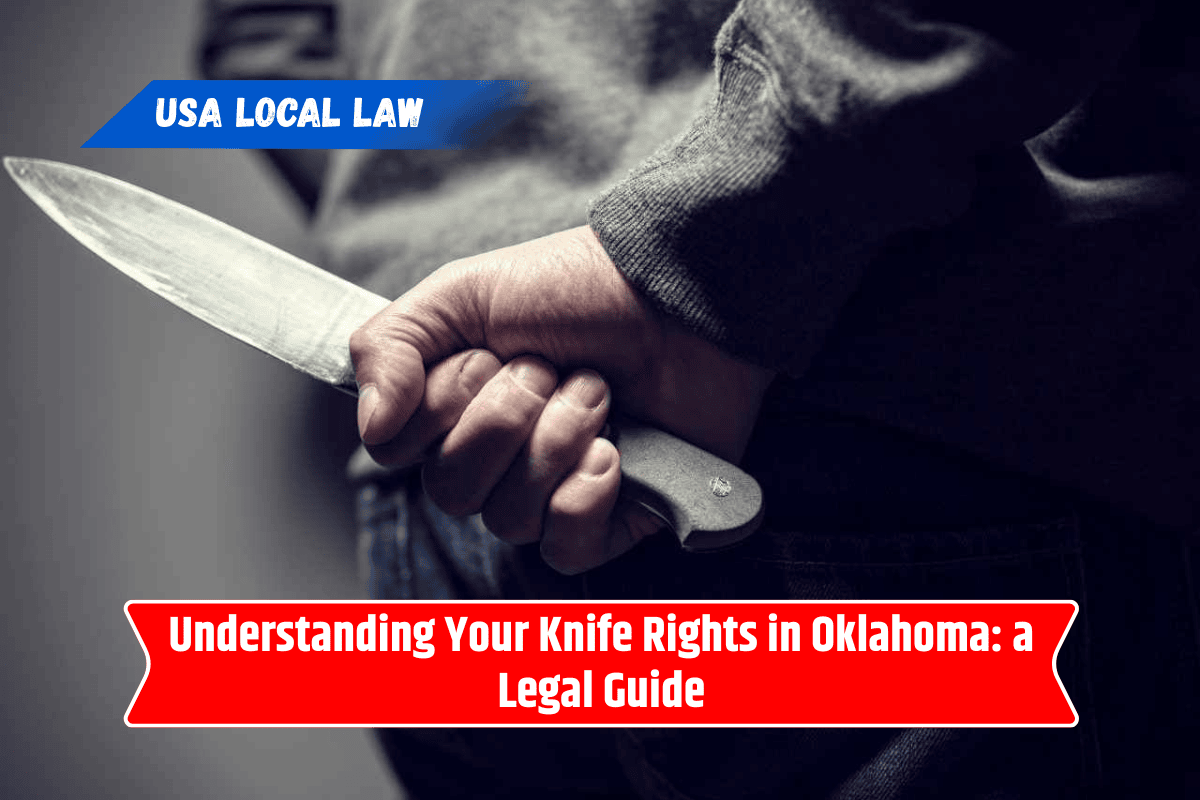If you live in Oklahoma or plan to travel there, it’s important to know the laws about carrying and owning knives. Whether you carry a pocket knife for work, a hunting knife for outdoor trips, or simply want to collect blades, understanding your rights can help you stay out of legal trouble.
Knife laws can vary from state to state, so here’s a clear and simple guide to knife rights in Oklahoma.
Are Knives Legal in Oklahoma?
Yes, most knives are legal in Oklahoma. The state has some of the friendliest knife laws in the U.S., thanks to updates in recent years that removed many restrictions.
You can legally carry:
Pocket knives
Hunting knives
Bowie knives
Switchblades (automatic knives)
Balisongs (butterfly knives)
Daggers and dirks
Swords and machetes
This applies to both open carry and concealed carry, meaning you can legally carry a knife in your pocket, bag, or on your belt — without needing a special permit.
What Does the Law Say?
In 2015, Oklahoma passed a major knife rights law known as HB 1460, which removed the ban on switchblades and other “dangerous weapons.” As of now, Title 21, Section 1272 of Oklahoma state law allows you to carry almost any type of knife.
Here’s what the law allows:
| Knife Type | Legal to Own | Legal to Carry | Notes |
|---|---|---|---|
| Pocket Knife | Yes | Yes | No restrictions |
| Switchblade | Yes | Yes | Legal since 2015 |
| Balisong/Butterfly | Yes | Yes | Fully legal |
| Bowie Knife | Yes | Yes | Legal for carry and use |
| Sword/Machete | Yes | Yes | Legal, but unusual in public |
| Dagger/Dirk | Yes | Yes | Legal for carry |
Where You Cannot Carry a Knife
Even though Oklahoma allows most knives, there are a few places where carrying them is not allowed:
Schools (K-12): It’s illegal to carry any kind of knife on school property, including in your car.
Federal buildings: You cannot bring knives into courthouses, post offices, or other federal properties.
Private property with restrictions: If a business or homeowner posts a “no weapons” sign, you must respect it.
What About Minors?
Minors under the age of 18 can legally carry a basic pocket knife, but carrying larger or more dangerous knives like switchblades may lead to legal trouble. Parents should guide teens about what’s appropriate and where they can carry a knife.
Self-Defense and Knife Use
In Oklahoma, you have the right to defend yourself if threatened, under the state’s Stand Your Ground law. However, using a knife in self-defense must be reasonable and necessary. Misusing a knife or threatening someone with one without good reason can still lead to criminal charges.
What to Do If Stopped by Police with a Knife
If you’re carrying a knife and a police officer stops you:
Stay calm and respectful.
Tell them politely that you’re carrying a knife.
Explain its use (e.g., for work, camping, or general utility).
Keep your hands visible and don’t reach for the knife suddenly.
Even if it’s legal, how you behave matters a lot in such situations.
Oklahoma is one of the most knife-friendly states in the U.S., with very few restrictions on the types of knives you can carry or own. However, it’s still important to know where knives are banned and how to carry them responsibly.
By understanding the law, you can avoid problems and use your knife safely — whether it’s for work, outdoor activities, or everyday use.
